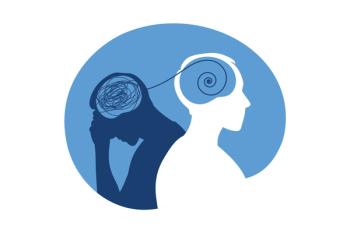
Role of Family History and Genetics in Bipolar 1 Disorder
Vladimir Maletic, MD, MS, and Andrew Cutler, MD, comment on the value of studying genetics and family history for diagnosing and treating bipolar 1 disorder.
Episodes in this series

Vladimir Maletic, MD, MS: There has been a lot of research into pathophysiology and genetics of bipolar disorder. Anything in this research that has caught your attention, Andy? Anything that you think has clinical relevance?
Andrew Cutler, MD: Certainly. Let me start with the second part of what you said. Bipolar disorder is highly genetic, and in many ways, it’s more genetically loaded than unipolar depression. It’s helpful clinically to dig hard for a family history of mood disorders. If you get a family history of bipolar disorder or manic depression, that’s very fortunate, but we don’t always get that exact terminology. The farther along I’ve gone in my career, the more value I place on genetics and family history, and the longer I take and the harder I dig on family history compared to when I was younger in my career. I will ask about recurrent mood episodes, any family members that had depression or mood episodes, substance abuse, and family history of suicide. Because patients with unipolar depression attempt suicide, but patients with bipolar commit suicide. They tend to use more lethal attempts. A patient once taught me nervous breakdowns, which is a layman’s term, but often if you ask about details, you’ll find it was either a manic or a severe depressive episode, a family history of hospitalization, institutionalization, and substance abuse. These are all things that I like to emphasize clinically. That’s one of the major clues because as you know, Vlad, the DSM [American Psychiatric Association’s Diagnostic and Statistical Manual of Mental Disorders] doesn’t do us a whole lot of favors. The definition of a major depressive episode is the same, unfortunately, whether we’re dealing with the unipolar MDD [major depressive disorder] or bipolar disorder. We need to have clues sometimes. As far as the neurobiology, you are an expert on that. I just find the neurobiology fascinating. There are many findings that are distinct and different from unipolar depression while neuroradiology and imaging is not ready for prime time yet. We don’t use it for diagnosis, but there are some interesting findings. The primacy of the dis-regulation of certain networks when we trained we were taught there was a part of the brain that was responsible for depression and there was something wrong with this part of the brain. We now know it’s much more complicated. We now talk about circuits, nodes, and networks, and how various parts of the brain communicate, and how these circuits are regulated and integrate, modulate together.
Transcript edited for clarity
Newsletter
Receive trusted psychiatric news, expert analysis, and clinical insights — subscribe today to support your practice and your patients.








